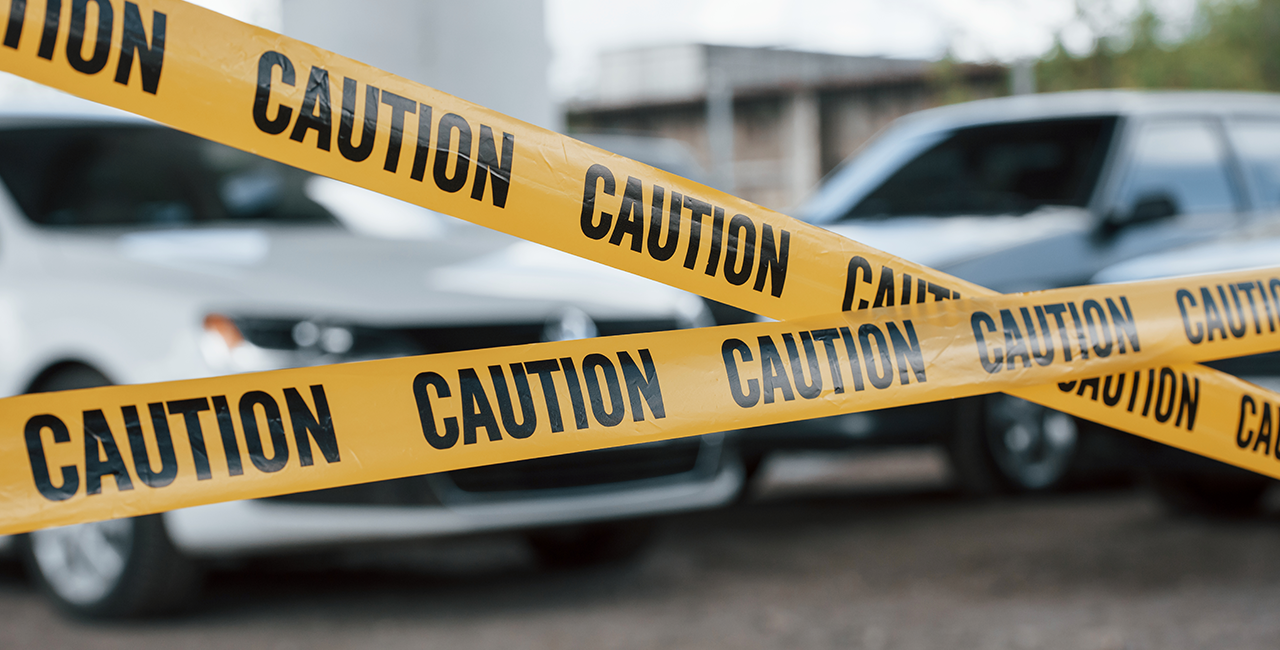Do all accidents show up on your driving record in Texas?
A Texas driving record, also known as a motor vehicle abstract or MVR ( Motor Vehicle Report), is an official document that records your driving history in the state of Texas.
Your personal information, driver’s license status, traffic violations, accidents, and convictions are all recorded in it.
That is why insurance companies like to look at your driving record before insuring you. Generally speaking, the more accident-free and traffic violation-free a record is, the lower the insurance rate will be; otherwise, it will increase.
If you search for an accident lawyer near me, you will get to know the answer to the question, ‘Do all accidents show up on your driving record in Texas?’
Reportable vs. Non-Reportable Accidents
Accidents in Texas can be categorized into two main types. These can be reportable and non-reportable accidents. Clearly identifying what kind of accident is involved will prevent problems if you want to report it.
Reportable Accidents
Texas defines a reportable accident as any accident that has to be reported to the police. The only difference is that these involve either more serious accidents, more damage, or injuries.
People must immediately report accidents involving injuries or a fatality to the local police department, county sheriff’s office, or the nearest law enforcement agency.
In addition to these, all other accidents that cause loss of property valued at more than USD 1000 must be reported within ten days of the accident.
Non-Reportable Accidents
Non-reportable accidents are usually relatively minor accidents that don’t have to be reported by law.
It should be noted that non-reportable accidents need not be reported to the police at once, but it is still important to exchange information with other parties concerned. It should be remembered that minor fender benders, parking lot incidents, etc., are generally viewed as non-reportable accidents.
These accidents are, fortunately, without injury or death and appear only as damage to vehicles. If an accident occurs on private property, for example, a parking lot or driveway, law enforcement intervention is unnecessary unless there is some sort of dispute between the parties.
For non-reportable accidents, drivers are required to exchange insurance and contact information. Drivers should familiarize themselves with the rules on whether an accident must be reported and how to report it, as set out by the Texas Department of Transportation.
Impact on Fault in Reporting
Here’s an explanation of how fault can affect reporting and the reporting responsibilities for at-fault and non-fault drivers in Texas:
Reporting Responsibilities for At-Fault Drivers
If you’re the driver who was at fault, then you must take responsibility for your actions and accept the punishment. In such cases, at-fault drivers are usually responsible for reporting the accident to law enforcement as quickly as possible.
At-fault drivers are typically required to report the accident to law enforcement immediately or as soon as possible, especially in the following situations:
- Injuries or deaths caused by accidents.
- No matter how, hit-and-run accidents involve injury.
- Drunk driving, also called DUI or DWI.
- Accidents resulting in property loss of more than USD 1,000.
In addition, you must instantly report the accident to your insurance company. If you fail to report an accident to your insurance company, it may cause problems with the claim. Also, drivers found to be responsible will be required to fully cooperate with law enforcement investigations and truthfully report facts about the accident.
Reporting Responsibilities for Non-Fault Drivers
However, if you are not responsible for the accident, then your reporting duties will be different. In most cases, you will exchange insurance details and phone numbers with the other driver and any accident witnesses.
Unless the accident involves a death, non-fault drivers are not required to report it to law enforcement.
- Injuries or death are caused by the accident
- The responsible driver takes off (hit and run)
- The accident involves drunk driving.
To be on the safe side, you should report the accident to your insurance company, even if it wasn’t your fault, so that any possible damage is properly documented.
The Impact on the Accident Record
The requirement to keep evidence could be impacted by the fault. The at-fault drivers definitely have a bigger motivation to save evidence for legal self-protection.
If you admit fault or don’t immediately report an accident, will there be legal repercussions? Can fault determination influence the insurance settlement process? Accident victims may claim damages from the responsible driver or may file claims with the insurance of the at-fault driver.
Accidents on the Driving Record
So, we can say that accidents do have a big effect on your driving record, and this is why you need to better understand how an accident is recorded on your record. Here’s an explanation of the presence of accidents on your driving record and how reported accidents can impact it.
Inclusion of Accidents on Your Driving Record
In Texas, accidents of any notable nature are likely to be reported and documented on your driving record. This record is kept by the Texas Department of Public Safety (DPS).
The accident section will include details about such accidents as may have been reported to the police due to injuries, deaths, serious damage to property, or other legal necessities. Your own driving record (accidents you are involved in while using your license).
Effect on Driver’s Record
The state of Texas employs a points system to keep track of motorists’ driving habits. The truth is, if you are not careful, accidents can result in points gathering on your driving record.
The effect on your driving record of an accident is possibly the most obvious. Your insurance rates may rise. Accidents are typically seen by insurance companies as a sign of higher risk, which is a decrease in premiums.
You can be put into the DRP program for serious accidents or certain violations associated with accidents. The fines and penalties assessed against all traffic violations would be extended by this program.
Duration of Impact
Accidents stay on your record for varying amounts of time. Accidents often remain on your record for years, impacting your insurance rates during that period.
An accident on your record will eventually have a reduced impact on your rates if you can keep your driving record.
Safe Driving Practices
In order to stay away from accidents, it is very important to take some safety measures. One should remember that the only way to avoid accidents and maintain a clean driving record is through safe driving habits and defensive driving techniques. Here are some tips and strategies to help minimize the risk of accidents:
- Distracted driving is one of the prime causes of accidents. Do not operate your phone while driving, and if really needed, use a hands-free accessory.
- Don’t engage in any other activity, such as eating, grooming, or even turning the radio up or down.
- Keep the distance between yourself and the vehicle ahead far enough so that you can brake safely. Texas suggests an appropriate following distance of at least three seconds.
- Obey posted speed limits and slow down in bad weather or heavy traffic. Always signal your intentions to other drivers with your turn signals.
- Double-check your blind spots before switching lanes or turning. Use your mirrors and check the crane, as there may be vehicles in your blind spots.
At Mokaram Law Firm, the most competent lawyers can take your cases in hand and provide you with the best solutions possible.
Contact Mokaram Law Firm!
In order to get done with your cases in the most efficient manner, it is very important that you get help from one of the top law firms, Mokaram Law Firm. These law firms can help you get through your cases in the best way possible with the help of the most trained and professional lawyers. Dial (281) 609-9224 now to get your consultations booked.
Recent Posts
-
 21 Feb 2025Is a DUI or DWI Considered a Felony?
21 Feb 2025Is a DUI or DWI Considered a Felony? -
 21 Feb 2025How Long Does a Speeding Ticket Stay on Your Record?
21 Feb 2025How Long Does a Speeding Ticket Stay on Your Record? -
 18 Feb 2025Delta Plane Crash at Toronto Pearson Airport: Bombardier CRJ900 Overturns
18 Feb 2025Delta Plane Crash at Toronto Pearson Airport: Bombardier CRJ900 Overturns -
 13 Feb 2025Is It Illegal to Drive Without Insurance in Texas?
13 Feb 2025Is It Illegal to Drive Without Insurance in Texas? -
 13 Feb 2025How Self-Driving Cars Could Increase Accidents
13 Feb 2025How Self-Driving Cars Could Increase Accidents -
 30 Jan 2025Washington, D.C. Plane Crash: Investigation Underway Following Collision with Black Hawk Helicopter
30 Jan 2025Washington, D.C. Plane Crash: Investigation Underway Following Collision with Black Hawk Helicopter -
 22 Jan 2025How Do People Who Text and Drive Get Punished in Different States?
22 Jan 2025How Do People Who Text and Drive Get Punished in Different States? -
 22 Jan 2025Do Pedestrians Have the Right of Way?
22 Jan 2025Do Pedestrians Have the Right of Way? -
 20 Jan 2025Are Radar Detectors Legal? Everything You Need to Know About Radar Detector Laws
20 Jan 2025Are Radar Detectors Legal? Everything You Need to Know About Radar Detector Laws -
 20 Jan 2025What Age Can You Get Your Driver's License in Texas?
20 Jan 2025What Age Can You Get Your Driver's License in Texas? -
 07 Jan 2025Legal Help for Families Affected by Jeju Air Flight 2216
07 Jan 2025Legal Help for Families Affected by Jeju Air Flight 2216 -
 17 Dec 2024Is Lane Splitting Legal in Texas?
17 Dec 2024Is Lane Splitting Legal in Texas?






